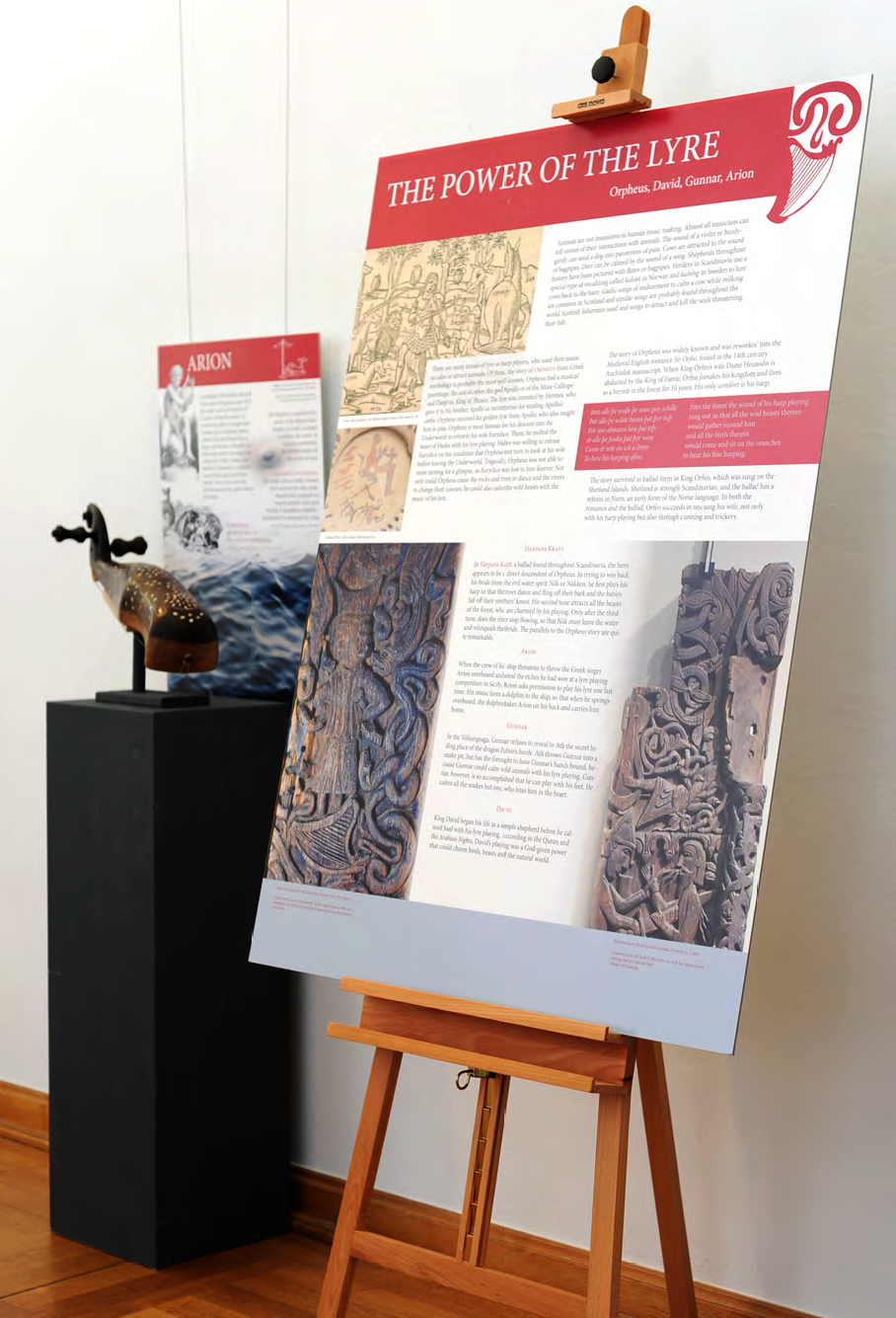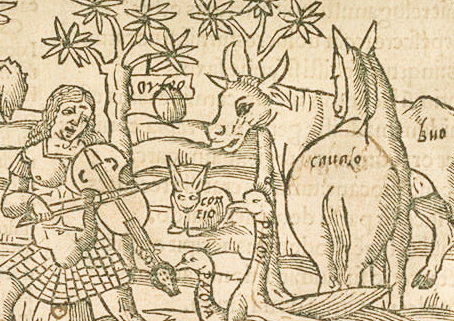Station VII: The Power of the Lyre
Orpheus, David, Gunnar, Arion…
Animals are not insensitive to human music making. Almost all musicians can tell stories of their interactions with animals. The sound of a violin or hurdygurdy can send a dog into paroxysms of pain. Cows are attracted to the sound of bagpipes. Deer can be calmed by the sound of a song. Shepherds throughout history have been pictured with flutes or bagpipes. Herders in Scandinavia use a special type of vocalizing called kulokk in Norway and kulning in Sweden to lure cows back to the barn. Gaelic songs of endearment to calm a cow while milking are common in Scotland and similar songs are probably found throughout the world. Scottish fishermen used seal songs to attract and kill the seals threatening their fish.
There are many stories of lyre or harp players, who used their music to calm or attract animals. Of these, the story of Orpheus from Greek mythology is probably the most well-known. Orpheus had a musical parentage, the son of either the god Apollo or of the Muse Calliope and Oaegrus, King of Thrace. The lyre was invented by Hermes, who gave it to his brother Apollo as recompense for stealing Apollo’s cattle. Orpheus received his golden lyre from Apollo, who also taught him to play. Orpheus is most famous for his descent into the Underworld to retrieve his wife Eurydice. There, he melted the heart of Hades with his lyre playing. Hades was willing to release Eurydice on the condition that Orpheus not turn to look at his wife before leaving the Underworld. Tragically, Orpheus was not able to resist turning for a glimpse, so Eurydice was lost to him forever. Not only could Orpheus cause the rocks and trees to dance and the rivers to change their courses, he could also calm the wild beasts with the music of his lyre.

The story of Orpheus was widely known and was reworked into the Medieval English romance Sir Orfeo, found in the 14th century Auchinlek manuscript. When King Orfeo’s wife Dame Heurodis is abducted by the King of Faerie, Orfeo forsakes his kingdom and lives as a hermit in the forest for 10 years. His only comfort is his harp:
Into alle þe wode þe soun gan schille
Þat alle þe wilde bestes þat þer beþ
For ioie abouten him þai teþ;
& alle þe foules þat þer were
Come & sete on ich a brere
To here his harping afine
[Into the forest the sound of his harp playing
rang out so that all the wild beasts therein
would gather around him
and all the birds therein
would come and sit on the branches
to hear his fine harping.]
The story survived in ballad form in King Orfeo, which was sung on the Shetland Islands. Shetland is strongly Scandinavian, and the ballad has a refrain in Norn, an early form of the Norse language. In both the romance and the ballad, Orfeo succeeds in rescuing his wife, not only with his harp playing but also through cunning and trickery.






